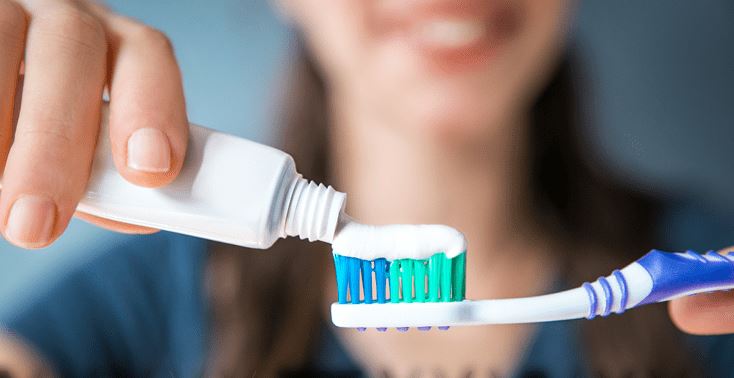Want better oral health over the long term? Well, forget the quick fix – great oral health starts with the basics, applied diligently.
Brush with intention
There’s no way around it: twice daily brushing is mandatory for a healthy, long-lasting smile. Brushing clears away bacteria and plaque buildup from the mouth, and even improves your sense of taste! Plus, if you’re brushing with a fluoride toothpaste, you’ll be helping to fight cavities and strengthening your teeth while you brush.
Tooth brushing should start at infant age with caregivers wiping teeth and gums clean with a damp cloth (no toothpaste) after meal times and before bed.
Core principles:
- Brush for two minutes, twice a day (preferably after meals)
- Supervise and encourage children
- Use an appropriately sized brush
- Replace toothbrushes every three months
It takes only two minutes (twice a day), so don’t skip it. Floss your teeth regularly too – your future self will thank you for it.

Something to chew on
While there’s no single superfood that can grant you a lifetime of oral health, eating a healthy, varied diet over the long term is definitely the next best thing.
Foods conducive to better teeth and gums include:
- Vitamin C and fiber-rich fruits and vegetables
- Calcium-rich foods, including almonds and dark, leafy veggies
- Phosphorus-rich foods, including nuts and beans
- Green and black tea
Honorable mention goes to plain old water. It’s the healthiest drink on the planet, delicious in its own weird way, and (usually) free.
What about foods to avoid?
While acid can corrode teeth and sticky foods are their own issue, it’s the sweet sugary foods that cause the most damage. Making matters worse, high levels of sugar consumption are directly linked to gum disease and if untreated, can advance into full-blown periodontitis, destroying gum tissue and even decaying the bones supporting your teeth.

Beat your nerves!
Runaway nerves can get in the way of regular checkups and maintenance, so it’s important to address anxieties about your dental care.
First of all, realise that feeling stressed or nervous about visiting the dentist is a natural, normal response. According to one reckoning, dental anxiety affects approximately 36% of the population, with a further 12% suffering from ‘extreme dental fear’, so at least know that you are not alone.
So what are some ways to ease dental anxiety and calms your fears?
- Check out your dentist’s reviews before you visit
- Before you arrive, ask your dentist what you can expect from your consultation
- Listen to music
- Avoid caffeine
- Practice mindfulness
In any case, talk to your practitioner about how you’re feeling and they will do their best to set your mind at ease.
Keep in touch
Routine dental exams, cleaning, and maintenance is key to better oral health over the long term.
Taking a long term approach to your dental health, holistic dentists such as Simply Dental will get to know you, what your goals are, and what kind of at-home maintenance plan will suit you best.
From there, a schedule can be established, with prevention and maintenance care services including:
- Dietary support and advice
- Personal oral hygiene advice and instruction
- Cleaning and removal of plaque build-up
- Stain removal
- Coatings to protect vulnerable and/or sensitive surfaces
- Fluoride treatments
Ready to get started? Click here to book an appointment online.

